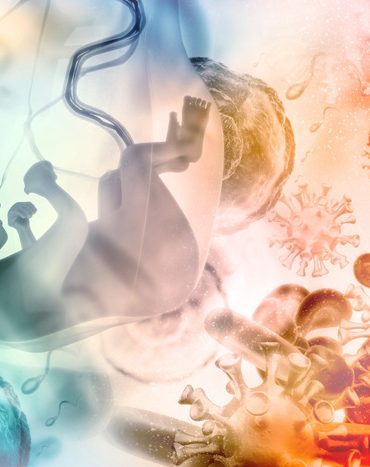4 YEAR RESIDENTIAL MEDICAL TRAINING PROGRAM
CURRICULUM
The time and content assigned to this area are distributed as follows:
- ALLERGY AND IMMUNOLOGY
Concepts
Active and passive, natural and acquired immunity
Immunogenicity
CELLS AND ORGANS INVOLVED IN THE IMMUNE RESPONSE
Ontogeny and phylogeny of the immune system
Structure and function of the PLO and SLO
- LYMPHOCYTES
Types
Functions
Cell markers
Importance of Th1 and Th2
- SPECIFIC AND NONSPECIFIC DEFENSE MECHANISMS
Phagocytosis
Differences between immune and opsonic adherence
Types of phagocytes
Functions of macrophages
- ANTIGENS
Haptens
Allergens
Immunogens
Concepts
Antigen classification Examples
Antigenic determinants
Forshmann heterophile antigen
Complete and incomplete adjuvants
- ANTIBODIES (Ac) IMMUNOGLOBULINS (Igs)
Concept
Classification
Classes and subclasses
Porter schema
- HYPERSENSITIVITY REACTIONS
Concept
Variants
Participating cells
Mechanisms
Diagnosis
Diseases
Treatment
- ADDITION
Activation paths
Biological role
Regulatory mechanisms
- INFLAMMATION
- SYNTHESIS AND IMMUNOREGULATION OF THE Ig E
- CELLULAR COOPERATION
CPA LT
LT LB
T4 T6
Macrophage LB
LT Macrophage
- CYTOKINES
Lymphokines
Interleukins
Characteristics
Role of the R.I.
- EOSINOPHILS
Characteristics
Functions
Causes of eosinophilia
Hypereosinophilic syndrome
- CAUSES OF IG e INCREASE
- ANAPHYLAXIS
Active and passive
In vivo and in vitro
Differences between atopy and anaphylaxis (Shultz-Dale and Ovari)
- ANAPHYLACTOID REACTIONS
Sanarelli-Schawarsmann phenomena
Clinical importance
- TOLERANCE AND IMMUNOLOGICAL PARALYSIS
Differences
Induction and termination of tolerance
- AUTOIMMUNITY
Concept
Classification
Criteria for considering an autoimmune disease. Examples
- IMMUNOLOGY OF THE GASTROINTESTINAL SYSTEM
Viral hepatitis: acute and chronic
Primary biliary cirrhosis
Inflammatory bowel disease: idiopathic ulcerative colitis and Crohn’s disease
Celiac disease (gluten-sensitive enteropathy)
- IMMUNOLOGY OF THE THYROID
Hypothyroidism
Hyperthyroidism (Graves Basedow disease)
Hashimoto’s thyroiditis
- IMMUNOLOGY OF CARDIOVASCULAR DISEASES
Rheumatic fever
Dressler’s syndrome
- VASCULITIS
Classification
Allergic vasculitis
Pathological history
Differential diagnosis
Diagnosis
Treatment
- IMMUNOLOGY OF NEUROLOGICAL DISEASES
Central nervous system (CNS) immunology
Demyelinating diseases
Guillain Barré syndrome
Multiple sclerosis
Myasthenia gravis
Experimental encephalitis
Subacute sclerosing encephalitis
- Immunology of connective tissue diseases
Rheumatoid arthritis
Scleroderma
Dermatomyositis
Systemic lupus erythematosus
- TUMOR IMMUNOLOGY
- REPRODUCTION IMMUNOLOGY
- IMMUNOLOGY OF OLD AGE
- IMMUNOLOGY OF KIDNEY DISEASES
Masugi’s kidney
Heyman nephritis
Glomerulonephritis (Good Pasture syndrome)
- BULLOUS VESICLE DISEASES WITH IMMUNOLOGICAL CHARACTERISTICS
Pemphigus pemphigoid
Dermatitis due to linear deposits of Ig A
Dermatitis herpetiformis
Steven Jonson’s syndrome
- IMMUNOLOGY OF VIRAL AND BACTERIAL DISEASES
Acquired immunodeficiency syndrome (AIDS)
- PULMONARY EOSINOPHILIA
Hypersensitivity pneumonitis (AAE and ABPA)
Eosinophilic pneumonias
- IMMUNODEFICIENCIES
Classification
Characteristics
- HISTOCOMPATIBILITY ANTIGENS (HLA)
Concept
Uses
Transplant immunology
Types of transplantation
Types of rejection: hyperacute, acute and chronic
Graft-versus-host disease
- IMMUNOTHERAPY
Concept
Mechanism of action
Paths of administration
Indications and contraindications
Adverse reactions: local and systemic
- LABORATORY TESTS IN THE DIAGNOSIS OF ALLERGIES
Immediate and delayed hypersensitivity
Techniques
Interpretation
False negatives and positives
Indications and contraindications
Sensitivity
Specificity
P.K. Indications and contraindications
- ELABORATION OF ALLERGENIC EXTRACTS
Titration methods of extracts
- ANTIHISTAMINES
Mechanism of action
Pathways
Dose
Secondary reactions
Interactions
Indications
- STEROIDS
Mechanism of action
Pathways
Dose
Long-term side effects of therapy
Types of topical steroids
Uses
Indications and contraindications
Steroid resistance
- BRONCHODILATORS
Mechanism of action
Dose
Uses
Indications and contraindications
.
- MEMBRANE STABILIZERS
Ketotifen, Disodium Cromoglicate and Neochromomyl Sodium
Mechanism of action
Dose
Uses
Indications
- BRONCHIAL ASTHMA
Concept
Classification
Immunopathology and pathophysiology
Immediate and late asthma response
Participating cells
Clinical characteristics
Neuropeptide theory
Role of bronchial hyperreactivity (BHR) in bronchial asthma
Positive diagnosis
Differential diagnosis in children and adults Concept of attack, crisis, status
Warning signs in bronchial asthma
Treatment: crisis, intercrisis and chronic bronchial asthma
Bronchial asthma and non-steroidal anti-inflammatory drugs (NSAIDs)
Bronchial asthma and exercises
Bronchial asthma and pregnancy
Bronchial asthma and gastroesophageal reflux
Occupational bronchial asthma
Bronchial asthma in children
- ALLERGIC RHINITIS
Concept
Classification
Anatomical features
Differential diagnosis between vasomotor or cholinergic rhinitis, with non-allergic or intrinsic rhinitis and with bacterial rhinitis
Clinical, diagnostic, and allergenic and surgical treatment
- CHRONIC SINUSITIS, NASAL POLYPS AND OTITIS MEDIA
- URTICARIA AND RELATED CONDITIONS
Dermographism and SAD
Concept
Classification
Pathophysiology PA
Differential diagnosis
Treatment
Hereditary angioedema. Differences
- ATOPIC DERMATITIS
Concept
Clinical picture
Diagnostic criteria
Differential diagnosis
Treatment
- ALLERGIC CONTACT DERMATITIS
Concept
Clinical picture
Etiopathogenesis
Positive and differential diagnosis with primary irritant dermatitis
Treatment
- PHOTOALLERGY AND PHOTOTOXICITY
- OCULAR ALLERGY
Classification
Diagnosis
Treatment
- FOOD ALLERGY
Food intolerance
Allergy to cow’s milk
Antigenic composition of cow’s milk
Differences between allergy and intolerance
Heiner’s syndrome. Conduct
- ALLERGY TO INSECT BITES
- MUCOVISCIDOSIS (fibrocystic disease of the pancreas)
- SARCOIDOSIS
- CLASSIFICATION OF ADVERSE DRUG REACTIONS
Penicillin allergy
Acetylsalicylic acid (ASA) allergy
Allergy to local and general anesthetics
Allergy to iodine contrast agents
Insulin allergy
- ALLERGY EMERGENCIES
Anaphylaxis
Asthmatic status
Acute reactions to local and general medications
Acute dermatological reactions
Respiratory failure
Glottic oedema. Response to the situation
- RESPONSE TO DOG BITES
Rabies vaccination
- MIGRAINE HEADACHE
Horton’s histamine headache. Differences
- IMMUNIZATION
Toxoids
Vaccines
- RESPIRATORY FUNCTION TESTS
Concept
Indications
Contraindications
Interpretation
- MONOCLONAL ANTIBODIES (MAb)
Concept
Collection
Biological utility
Therapeutic applications
- Western-Blott technique
- Importance of traditional medicine in allergies





